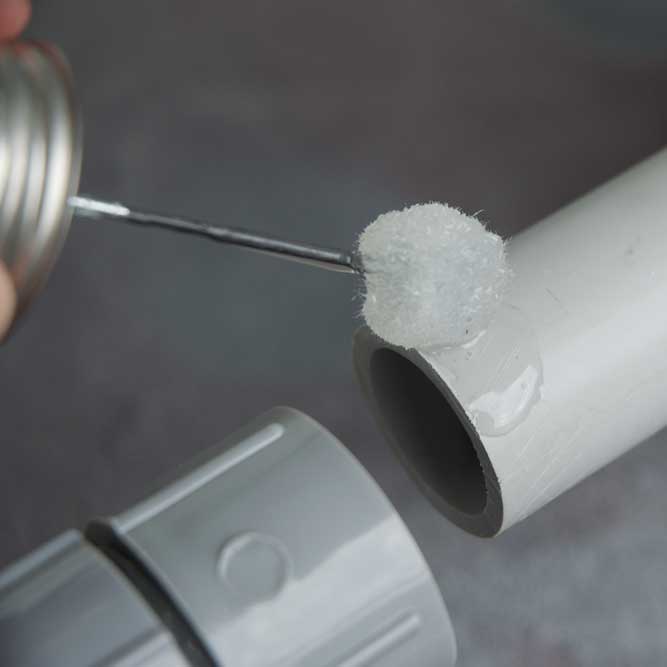PVC solvent cement is an adhesive, which is used to joint PVC pipes and fittings. It is a fast acting adhesive that works by chemically bonding the pipes and fittings together. When it is applied to the pipe joint, the solvent cement rapidly softens and dissolves the surface of the PVC pipes and fittings by creating a strong bond. In fact, all PVC solvent cement is not created equal.
There are different types of PVC solvent cement available that are designed for other applications, such as heavy duty, medium and regular in different color for indoor and outdoor pipes and fittings.
Pvc solvent cement
PVC solvent cement is a very versatile and time tested adhesive that is essential and effective for joining PVC pipes and fittings in the pipe industry. It is important to select the appropriate type of PVC solvent cement like PLASTOCHEM PVC Solvent Cement for the specific application if you want to have a strong and durable bond of your PVC pipe and fittings.
PVC Solvent Cement is used in various applications such as plumbing, industries, pool and spa, irrigation, construction, and others:
- Plumbing
PVC solvent cement is widely used in several plumbing applications to join PVC pipes and fittings. It provides a strong and secure bond that can withstand the pressure created by water flow. - Chemical Processing
As PVC pipes are used in chemical processing applications, and PVC solvent cement is also used to join the pipes and fittings together. - Vinyl Flooring
PVC solvent cement is also used to install vinyl flooring. It is used to bond the vinyl tiles to the subfloor, creating a long lasting installation. - Pool and Spa
PVC solvent cement is mostly used for pool and spa applications, such as connecting PVC pipes and fittings for the filtration system. When using PVC solvent cement, it is important to follow the manufacturer’s instructions carefully to ensure a strong and secure joint. This typically involves cleaning the surfaces to be joined, applying the cement evenly, and allowing sufficient time for the joint to cure. It is also important to use appropriate safety measures, such as wearing gloves and working in a well ventilated area, as the solvent in the cement can be hazardous if not handled properly.



